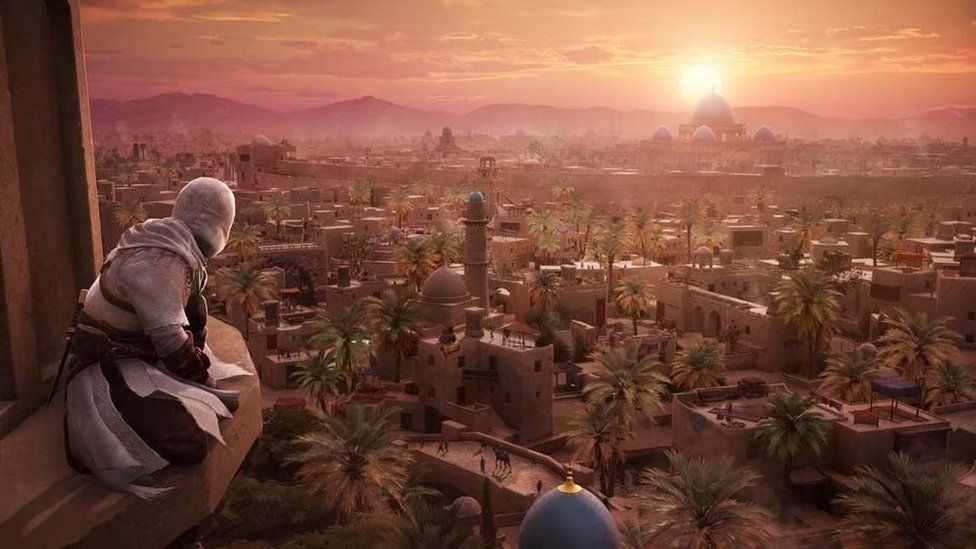Newly released Assassin’s Creed Mirage features murder and mystery but historical fiction is this video game’s real star as the new video game attempts to offer a glimpse of Baghdad, once the capital of an empire and the centre of the Islamic world.
Since 2007, Ubisoft’s well-known action-adventure game franchise has taken players on journeys across the globe and through several historical eras.
For this version, which takes place in Baghdad in the ninth century, creators Ubisoft have recorded the game’s performances in Arabic.
With its 13th instalment released on Thursday, Assassin’s Creed Mirage attempts to immerse players in Iraq’s 9th-century Baghdad during the rule of the Abbasid Caliphate, when it was one of the most significant cities in the world.

Although earlier games in the venerable stealth franchise were set in the Middle East, Europe, and Africa, the protagonists were by default always voiced by actors who spoke English.
Players can still choose to play the game with English voices, but its makers hope they’ll choose the more “authentic” Arabic.
According to Mohammed Al Imam, who works for Ubisoft’s Middle Eastern and North African division, the language used in the game is classical Arabic, a dialect that is “more than 1,000 years old” and “still used today in news, academia, and the entertainment industry.”
It is different from contemporary spoken dialects, according to him, yet it is nevertheless commonly understood.
Another key part of Mirage, and previous Assassin’s Creed games, is faithfully recreating their historical settings.
Early reviews of the game, which is available on Playstation, Xbox and PC, have been generally favourable, according to aggregator Metacritic.
And some websites, including Polygon, IGN, and Eurogamer, have praised Mirage for its more focused approach, compared with sprawling recent titles in the series.
Game Preview:
Assassin’s Creed Mirage is a dream for stealth kings. According to a recent hands-on we conducted with the game, fans of Sam Fisher from Splinter Cell or just the previous Assassin’s Creed games will have a great time exploring the lovely Baghdad of the ninth century.
We fling coins, momentarily divert a guard, and scurry around corners. We hide in shadowy places at night since even our shadow in a candle could betray us. From the perspective of Assassin’s Creed Valhalla, it feels quite different. In the game, we play a bear-like character with arms like tree trunks, swinging an axe to frighten the English soldiers.
Valhalla also had its moments, but in Mirage there is much more of a hand-built feel. Look at the finely crafted vase, the decorations on the walls. Every single house, every room has that attention to detail that is only possible in a smaller Assassin’s Creed.
We need to exercise caution in Assassin’s Creed Mirage because our protagonist, Basim, doesn’t fare well, especially early on when wearing only a basic blouse as part of his thief attire. And oddly, in the first missions, he is completely without weaponry. Ubisoft genuinely wants to train us to move slowly, deliberately, and covertly, to use haystacks, to blend in with the throng, and to perfect small-scale pickpocketing. The Baghdad Guard commander is quite well protected; there are three or four men standing immediately next to him, but there are also men on towers and three gloomy-looking soldiers patrolling at the gate. We are supposed to steal the captain’s key.
You’ll rapidly lose out if you enter there haphazardly, like Eivor the Viking would have done. The reintroduction of stealth, parkour, and the creation of clever escape routes are all reasons to celebrate at Ubisoft Bordeaux. For instance, we can climb ladders and then knock them down to delay the city guards. Or, if you don’t have a Scimitar blade with you, only your bare fist and a somewhat frail youth, knock over a spice stall. It’s hardly the best solution, but what else is a poor rogue to do?


































